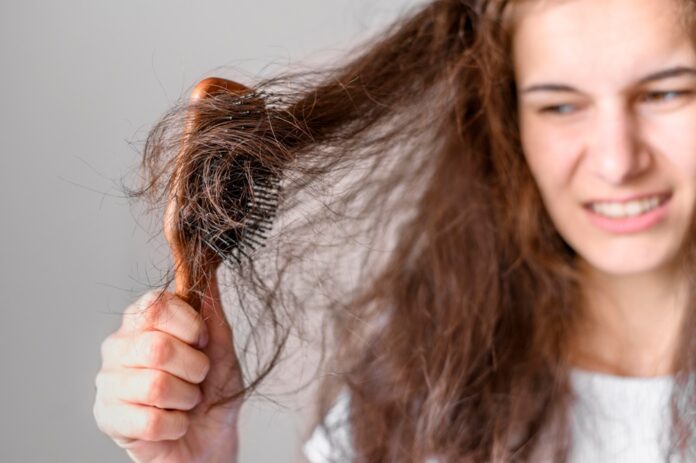Millions of people around the world experience hair loss, which makes them lose confidence and be less happy with their bodies. If you’ve noticed your hair thinning, your hairline receding or patches of baldness, you may have read about DHT blockers in your research. However, what do we mean by DHT and how are blockers useful?
In this guide we cover how DHT blockers function, the kinds that exist and help you determine if they are a suitable solution for you.
What is DHT and How Can It Cause Loss of Hair?
Your body uses testosterone to create DHT. While testosterone helps develop males, it also usually causes hair loss, specifically androgenetic alopecia which is sometimes called male or female pattern baldness.
DHT binding to your hair follicles slowly constricts them, reducing the period during which your hair grows. In the end, it becomes easier to see the lack of hair because the follicles have become too thin and often can’t produce any more hair at all.
What Is a DHT Blocker?
Anything that comes naturally or is produced for use that blocks DHT from sticking to hair follicle receptors is known as a DHT blocker. Because these treatments obstruct this link, they keep your hair follicles healthy, delay hair loss and might even promote new growth.
DHT blockers come in various forms:
- Finasteride tablets that are taken by mouth
- Treatments that include Minoxidil along with drugs that stop DHT
- As examples, natural supplements (such as saw palmetto and pumpkin seed oil)
- Shampoos and conditioners that contain substances that prevent DHT
Types of DHT Blockers: Natural vs. Medical
1. Prescription DHT Blockers
Finasteride is by far the most famous oral drug that blocks DHT. It achieves this by blocking the action of 5-alpha-reductase which changes testosterone into DHT. According to research, Finasteride treatment can decrease levels of DHT in the body by up to 70% which helps slow hair thinning.
Finasteride may cause certain side effects such as:
- Decreased libido
- Erectile dysfunction
- Hormonal imbalances
That’s the reason it’s recommended to talk to a doctor before using medical DHT blockers.
2. Natural DHT Blockers
For anyone who wants something that’s holistic or has no side effects, natural alternatives can be used. Popular brands that sell DHT blockers online are:
- Saw Palmetto: The medicine is famous for disrupting androgenic hormone production
- Green Tea Extract: There are compounds in it that lessen DHT production
- Pumpkin Seed Oil: There is research showing that it significantly improves your hair density.
- Biotin and Zinc: These nutrients cannot prevent DHT but play a part in healthy hair growth.
Many people think that the effects of natural supplements happen more slowly and aren’t as noticeable as those of drugs. However, this is usually seen as a good thing because it means not taking the risks that come with drugs.
Should You Use a DHT Blocker?
If your hair is thinning or you are only starting to go bald, a DHT blocker may help. On the other hand, the most appropriate treatment decision depends on a person’s age, how much hormone they have, how much hair is falling out and their general medical condition.
Clinical Support for DHT Blockers
Research has found that using DHT blockers is effective for treating hair loss patterns. The Journal of the American Academy of Dermatology found that after using Finasteride for 6 to 12 months, more than 80% of men had better hair growth.
Final Thoughts: Is a DHT Blocker Right for You?
You don’t have to accept hair loss as inevitable. Whatever kind of solution you look at, the most important thing is picking one that is right for you.
At the Aventus Clinic, we will talk to you about the different ways to treat hair loss. There’s also the chance that we’ll change your treatment plan if we see that it doesn’t work for you.
They can help you feel better about how you look and your confidence by telling you about our DHT blocker treatment. Right away, this will make your hair look better.






